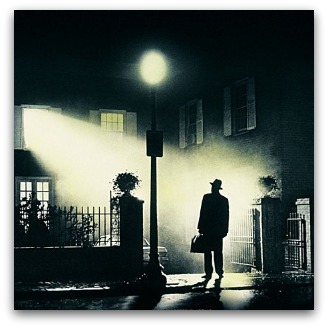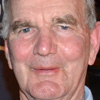 The visit to Australia of Fr Gabriele Amorth, an exorcist in Rome, aroused some comment. Most related exorcism to the wild eyed, brow furrowed, bloodstained spiritual shoot-outs portrayed in popular culture. When reflecting more soberly on the practice of exorcism within the churches, it is helpful to ask three related questions.
The visit to Australia of Fr Gabriele Amorth, an exorcist in Rome, aroused some comment. Most related exorcism to the wild eyed, brow furrowed, bloodstained spiritual shoot-outs portrayed in popular culture. When reflecting more soberly on the practice of exorcism within the churches, it is helpful to ask three related questions.
The first question concerns how the human predicaments that exorcists treat differ from other human predicaments, and so how exorcism differs from other ways of treating human maladies.
There are two simple responses. One response regards the phenomena as totally different. It believes that most maladies have natural causes, but that those treated by exorcism are diabolic in their origin and their manifestations. A corollary of this view is that diabolical possession and exorcism have a prominent role in Christian practice, and can be appealed to in support of Christian faith.
The other response argues that the cause of all human maladies is natural, and that exorcism is just one of many unscientific ways of addressing mental illness. They may sometimes work because of the attention given to the patient.
There is no common ground between these two positions, and little room for conversation between those who hold them. I argue for a more complex view that reserves judgment in principle about the causes and treatment of maladies, but claims that even diabolical causes will produce natural effects, so that they, as well as the exorcisms that address these effects, can be the object of scientific study.
So they can be spoken of both in scientific and in theological language. But they do not form a powerful argument for the truth of Christian faith.
The second question concerns the place given to evil, the demonic and exorcism in Christian faith. In the New Testament world human evils such as death and sickness were attributed ultimately to demonic forces. So Jesus' cures and his driving out of demons were symbols of God's victory over the evil that has mastered humanity.
The power of evil was also at work in the public world, and Jesus' death, the time when Satan came again to tempt him, demonstrated the evil in betrayal, expediency and political alliances.
Later heresy and persecution were attributed ultimately to demonic forces, but working through human causality.
The central message of the Gospel, however, is not that demons are powerful. It is that by dying and rising from the dead Jesus has conquered evil. Christians share in his victory, and so have no reason to fear evil or the demonic, still less to give them power. They are called to follow Jesus and so to allow his victory to appear in the world.
The third question concerns how to address the demonic in ways that correspond to the Gospel. In my judgment it is important to engage in conversation and symbolically with people, especially those from cultures in which belief in evil spirits is simply a given.
In some Asian cultures, for example, bad spirits are held to infect houses especially after death. So it is normal part of pastoral practice to bless the house and those who live in it, so offering assurance of God's power over evil spirits.
Simply to deny the presence of evil spirits and to refuse any symbolic engagement with them would seem to do no more than to assert the superiority of one's Western cultural assumptions.
The institution of exorcists who offer appropriate pastoral care to those acutely troubled also seems appropriate. I respect their work and do not wish to depreciate it when asserting my own belief that it is not generally helpful to give prominence in the churches to demonic possession and exorcism.
In our culture, where demonic forces are not part of the normal furniture in people's view of the world, and so lacking natural checks and balances, to emphasise the demonic, particularly through stories of exorcisms with the violent struggle they present, often encourages fear. The demonic, rather than Christ's victory over it, takes over people's imaginations and leads them to give power to demons.
The focus on possession and exorcism, too, can easily trivialise the place of the demonic in the Gospel. It imaginatively confines the Christian struggle to what takes place within the individual. It minimises the political and social dimensions of evil and of Christ's victory over it. The demonic is located in the home, and not in the meeting rooms of business, government and military leaders who place power and wealth above human dignity. This is a very thin view of faith.
To focus on the demonic and on exorcism also risks limiting the range of the conversation that might help the people who are subject to exorcism. It encourages a view in which the religious view of psychic disturbance and other views are not seen as complementary, but are opposed to one another.
Finally, the dramatic quality of exorcism encourages a dubious view of the religious minister as a single fighter in a clerical caste, the effectiveness of whose ministry depends on the quality of his own wrestling with God. Personally, I find this image of the minister as Romantic Hero attractive but open to self-delusion.
 Andrew Hamilton is the consulting editor of Eureka Street.
Andrew Hamilton is the consulting editor of Eureka Street.